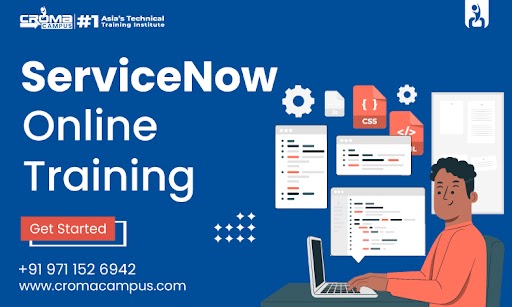The Intersection of Medicine and Management: What to Expect in Medical Management Courses

In recent years, there has been a growing recognition of the importance of integrating medical knowledge with management principles to address the complex challenges facing healthcare systems worldwide. As healthcare delivery becomes increasingly complex and multifaceted, the need for professionals who can bridge the gap between medicine and management has never been greater. In this comprehensive guide, we’ll explore the intersection of medicine and management and delve into what students can expect in a medical management course.
Understanding Medical Management
- Defining Medical Management: Medical management, also known as healthcare management or healthcare administration, involves the planning, coordination, and administration of healthcare services and resources to ensure optimal patient care delivery, organizational efficiency, and financial sustainability. It encompasses a broad range of functions, including strategic planning, healthcare policy development, financial management, human resources management, quality improvement, and patient safety initiatives.
- The Importance of Medical Management: Effective medical management is essential for addressing the complex challenges facing healthcare organizations, including rising healthcare costs, healthcare disparities, workforce shortages, technological advancements, regulatory compliance, and patient satisfaction. By integrating medical knowledge with management principles, medical managers can optimize healthcare delivery, improve patient outcomes, and enhance organizational performance in an increasingly competitive and dynamic healthcare environment.
Key Components of Medical Management Courses
- Foundations of Healthcare Systems: Medical management courses typically provide students with a comprehensive understanding of healthcare systems, including the structure, organization, and financing of healthcare delivery systems at the local, national, and global levels. Students learn about the historical development of healthcare systems, key stakeholders, regulatory frameworks, reimbursement models, and emerging trends shaping the healthcare landscape.
- Healthcare Leadership and Management Principles: Medical management courses emphasize the development of leadership and management skills essential for effective healthcare administration. Students learn about leadership styles, communication strategies, team dynamics, conflict resolution, decision-making processes, and change management principles applicable to healthcare settings. They also explore ethical and legal considerations in healthcare management, including patient rights, confidentiality, and healthcare fraud and abuse.
- Healthcare Finance and Economics: Understanding healthcare finance and economics is fundamental to medical management. Students learn about healthcare financing mechanisms, including public and private insurance programs, reimbursement methodologies, healthcare cost containment strategies, budgeting, financial analysis, revenue cycle management, and financial performance metrics. They also explore the economic principles underlying healthcare delivery, including supply and demand dynamics, healthcare market competition, and healthcare resource allocation.
- Quality Improvement and Patient Safety: Medical management courses emphasize the importance of quality improvement and patient safety initiatives in healthcare organizations. Students learn about evidence-based practices, performance measurement, process improvement methodologies, patient-centered care principles, healthcare accreditation standards, and regulatory requirements for healthcare quality and safety. They also explore strategies for reducing medical errors, preventing adverse events, and promoting a culture of continuous improvement and accountability.
- Healthcare Information Technology: Healthcare information technology (IT) plays a critical role in modern healthcare delivery, facilitating electronic health record (EHR) systems, telemedicine, health information exchange, data analytics, and population health management. Medical management courses cover the fundamentals of healthcare IT, including system selection and implementation, interoperability standards, data security, and privacy, health information exchange policies, and leveraging IT to improve clinical outcomes and operational efficiency.
- Healthcare Policy and Advocacy: Understanding healthcare policy and advocacy is essential for medical managers to navigate the complex regulatory environment and advocate for policies that promote access to high-quality, affordable healthcare services. Students learn about healthcare policy development processes, legislative and regulatory frameworks, healthcare reform initiatives, healthcare advocacy strategies, and the role of professional organizations and advocacy groups in shaping healthcare policy and practice.
Practical Applications and Experiential Learning
Medical management courses often incorporate experiential learning opportunities and practical applications to reinforce theoretical concepts and develop real-world skills. Students may participate in internships, practicums, case studies, simulations, and project-based assignments that allow them to apply management principles to healthcare scenarios, collaborate with interdisciplinary teams, and address complex healthcare challenges in diverse settings.
Career Opportunities in Medical Management
Graduates of medical management programs are well-positioned to pursue diverse career opportunities in healthcare administration, healthcare consulting, healthcare policy analysis, hospital management, clinical operations management, healthcare finance, healthcare informatics, pharmaceutical management, healthcare marketing, and healthcare entrepreneurship. Medical managers work in a variety of settings, including hospitals, healthcare systems, physician practices, long-term care facilities, insurance companies, government agencies, consulting firms, and non-profit organizations.
Advancing Healthcare Innovation
In addition to the foundational components of medical management courses, students can also expect to explore the frontiers of healthcare innovation and entrepreneurship. As the healthcare landscape continues to evolve, there is a growing emphasis on leveraging technology, data analytics, and interdisciplinary collaboration to drive innovation and improve patient outcomes.
- Healthcare Entrepreneurship: Medical management courses often explore the principles of healthcare entrepreneurship and innovation, empowering students to identify unmet needs, develop innovative solutions, and bring transformative healthcare technologies and services to market. Students learn about the process of ideation, market analysis, business model development, intellectual property protection, funding strategies, and commercialization pathways for healthcare innovations.
- Healthcare Data Analytics: Data analytics plays a pivotal role in modern healthcare management, enabling organizations to derive insights from vast amounts of healthcare data to inform decision-making, improve clinical outcomes, and enhance operational efficiency. Medical management courses cover the fundamentals of healthcare data analytics, including data collection, storage, analysis, visualization, and interpretation. Students learn about predictive modeling, machine learning algorithms, and data-driven approaches to healthcare delivery and population health management.
- Interdisciplinary Collaboration: Effective medical management requires collaboration across disciplines, including medicine, nursing, public health, informatics, engineering, and business. Medical management courses emphasize the importance of interdisciplinary collaboration and team-based approaches to problem-solving in healthcare. Students have the opportunity to collaborate with healthcare professionals from diverse backgrounds, leverage their complementary expertise, and develop innovative solutions to complex healthcare challenges.
- Telehealth and Remote Patient Monitoring: Telehealth and remote patient monitoring technologies have emerged as essential tools for expanding access to healthcare services, improving patient engagement, and delivering personalized care to patients in remote or underserved areas. Medical management courses explore the role of telehealth technologies, regulatory considerations, reimbursement models, and ethical implications of remote healthcare delivery. Students learn how to integrate telehealth solutions into healthcare delivery models and leverage technology to enhance patient-provider communication and collaboration.
Addressing Healthcare Disparities
Medical management courses also address the critical issue of healthcare disparities and equity, preparing students to advocate for equitable access to healthcare services and address social determinants of health that contribute to disparities in health outcomes.
- Health Equity and Social Determinants of Health: Medical management courses examine the social, economic, and environmental factors that influence health outcomes and contribute to healthcare disparities. Students learn about social determinants of health, including socioeconomic status, education, employment, housing, and access to healthcare services. They explore strategies for addressing health disparities, promoting health equity, and advocating for policies and programs that address underlying social determinants of health.
- Cultural Competence and Patient-Centered Care: Cultural competence is essential for healthcare professionals to deliver patient-centered care that respects and responds to the cultural, linguistic, and religious beliefs of diverse patient populations. Medical management courses emphasize the importance of cultural competence training, communication skills, and sensitivity to diverse patient needs and preferences. Students learn how to provide culturally competent care, engage with patients from diverse backgrounds, and address cultural barriers to healthcare access and utilization.
The Future of Medical Management
As the healthcare landscape continues to evolve, the field of medical management is poised for continued growth and innovation. Students in medical management courses play a pivotal role in shaping the future of healthcare delivery, driving organizational transformation, and improving patient outcomes through effective leadership, strategic management, and innovation.
By embracing the interdisciplinary nature of medical management, leveraging technology and data analytics, advocating for health equity and social justice, and fostering collaboration across healthcare disciplines, students can become transformative leaders who drive positive change in healthcare organizations and communities.
Conclusion
In conclusion, medical management courses play a crucial role in preparing students to navigate the complex intersection of medicine and management in today’s evolving healthcare landscape. By integrating medical knowledge with management principles, medical managers can drive organizational excellence, optimize healthcare delivery, and improve patient outcomes in an increasingly complex and dynamic healthcare environment.
As students embark on their journey in medical management, they can expect to gain a comprehensive understanding of healthcare systems, develop leadership and management skills, explore healthcare finance and economics, learn about quality improvement and patient safety initiatives, leverage healthcare information technology, engage in healthcare policy and advocacy, and participate in experiential learning opportunities that prepare them for successful careers in healthcare administration and management.
By embracing the challenges and opportunities inherent in medical management courses, students can become effective leaders, change agents, and advocates for positive transformation in healthcare delivery, shaping the future of healthcare for generations to come. Looking for a Medical management course? Visit our website today and explore healthcare administration programs.





